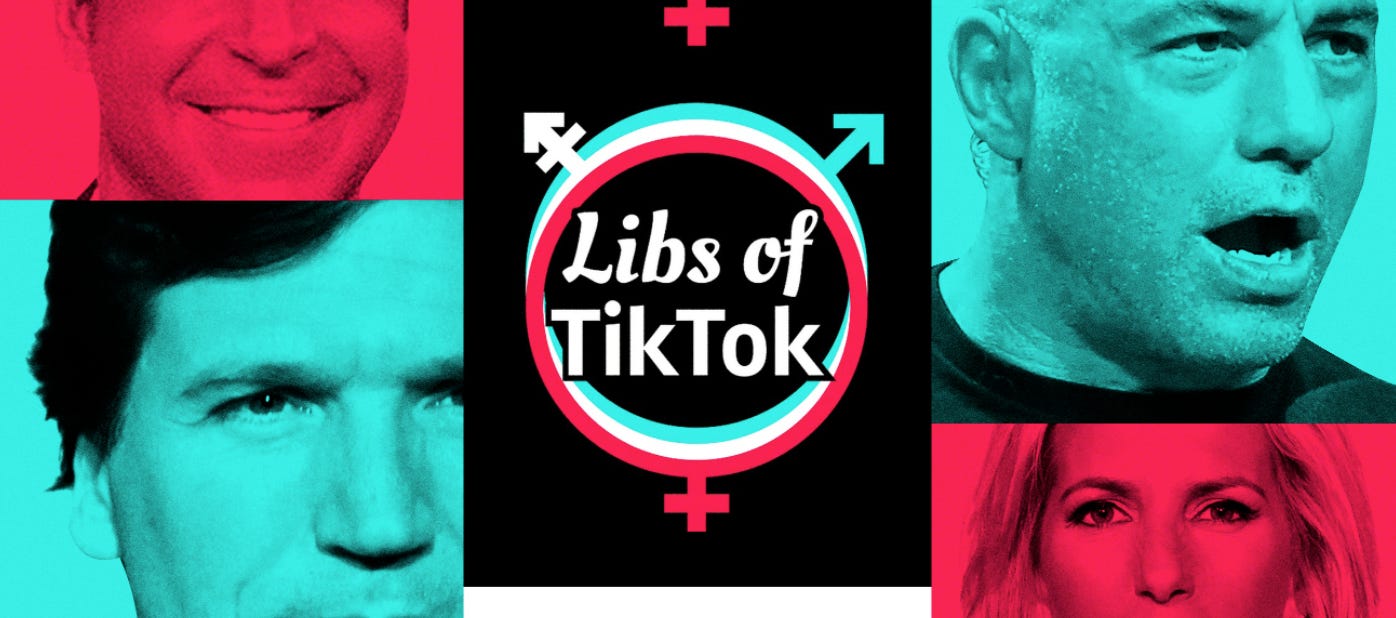Digital Threat Digest - 20 April 2022
PGI’s Digital Investigations Team brings you the Digital Threat Digest, daily SOCMINT and OSINT insights into disinformation, misinformation, and online harms.
Today we’re all about ethics, the legitimacy of doxxing when it’s in the public interest, and forfeiting right to remain anonymous online.
Don’t doxx me, bro
There’s a popular idea that you should never believe anything about Russia until a government spokesman has denied it. Equally, if you’re unsure of the ethics, morality, or intent of an anonymous social media profile, you can submit it to the Marjorie Taylor Greene (MTG) test: If she endorses it, they’re way up there in that top right quadrant of the political compass. And so, we come to Libs of TikTok, which MTG decided to endorse overnight. I briefly mentioned them yesterday, noting that Taylor Lorenz had written an article in the Washington Post “doxxing” the owner of the anonymous account. I need to set the scene for this one before complaining so as a speedrun of context: Libs of TikTok is an anonymous Twitter account which capitalises on rage bait, largely around LGBTQ+ issues, sharing clips of individuals designed to provoke outrage among far-right political commentators. As noted in the article it basically functions as a wire service for right wing media, providing Fox and Friends with readymade short clips they can roll while definitely-not-a-nazi Laura Ingraham seethes around critical race theory in the voiceover.
This case is particularly interesting because it has shed light on a classic problem; for as long as the internet has existed, doxxing has existed. The original meaning referred to dumping the entirety of a target’s personally identifiable information (PII) online with the implicit intent for it to cause them harm. Isolated cases of doxxing evolved into swatting, persistent cases of doxxing evolved into mass harassment where dedicated communities would harangue a target over time, pursuing them across platforms and identities as far as they could. At some point, the definitions of investigative journalism and doxxing began to overlap and become blurred. This wasn’t necessarily an organic evolution, but a deliberate effort by the US right wing to build a shield behind which they could hide. Satirical shielding allows rage baiting content creators to hide behind the defense of “just kidding, bro”, and framing legitimate journalism as doxxing is the digital equivalent of threatening to sue anyone that disagrees with you.
And so once again we have a problem of definition. Did Lorenz doxx Libs of Tiktok? There’s no question that she published some PII about the target, but was the express intent of Lorenz to cause harm to that individual or was it to highlight the dangerous role the account played in the conspiracy ecosystem? Equally, in a move that makes the IRGC look well-organised, the individual behind Libs of TikTok, Chaya Raichik, used her personal Gmail account to register the libsoftiktok.us domain. Is doxxing the identification of open source information, or is it the use of a platform to publicise that identification? If it’s a bit of both, is that a bad thing when you’re working in the public interest?
And let there be no doubt about this being in the public interest. An alternative to the MTG test is to play the narrative lottery and match any five conspiracy theories to successfully attribute a digital fascist. And, boy, has Raichik leaned into conspiracy: Denial of the risks of Covid-19, questioning the results of the US2020 election, classic QAnon themes around political child trafficking, Stop The Steal, BLM as a foreign funded threat actor, that’s five. Ah, she frames LGBTQ+ teachers as groomers – there’s our bonus ball.
In a system of surveillance capitalism, of an internet enabled and internet centric world users enter a social contract with the service. We agree to give up our personal information for convenience. I don’t care if Reddit knows my Amazon shopping habits because I don’t want to have to accept cookies every time I load r/soccer to look at the football highlights. Have I compromised some of my online privacy? Yes. Do I care? Absolutely not. Raichik’s systematic creation of online parody accounts seeking to build a following online to capitalise on right wing rage baiting means that she’s forfeited that same right to anonymity within that ecosystem. That’s the transaction. It might not be financial in this case, maybe it was just about having an audience and getting than endorphin rush, surveillance egotism rather than surveillance capitalism. But at the end of the day it doesn’t matter if you want to call this doxxing or not – it was public information about an individual who herself had had no qualms about anonymously doxxing hundreds of targets she called out with much more inherent and implicit negative intent. Lorenz called that out, and did so under her own name.
Meet the woman behind Libs of TikTok, secretly fueling the right’s outrage machine | Washington Post
More about Protection Group International's Digital Investigations
PGI’s Social Media Intelligence Analysts combine modern exploitative technology with deep human analytical expertise that covers the social media platforms themselves and the behaviours and the intents of those who use them. Our experienced analyst team have a deep understanding of how various threat groups use social media and follow a three-pronged approach focused on content, behaviour and infrastructure to assess and substantiate threat landscapes.
Disclaimer: Protection Group International does not endorse any of the linked content.





